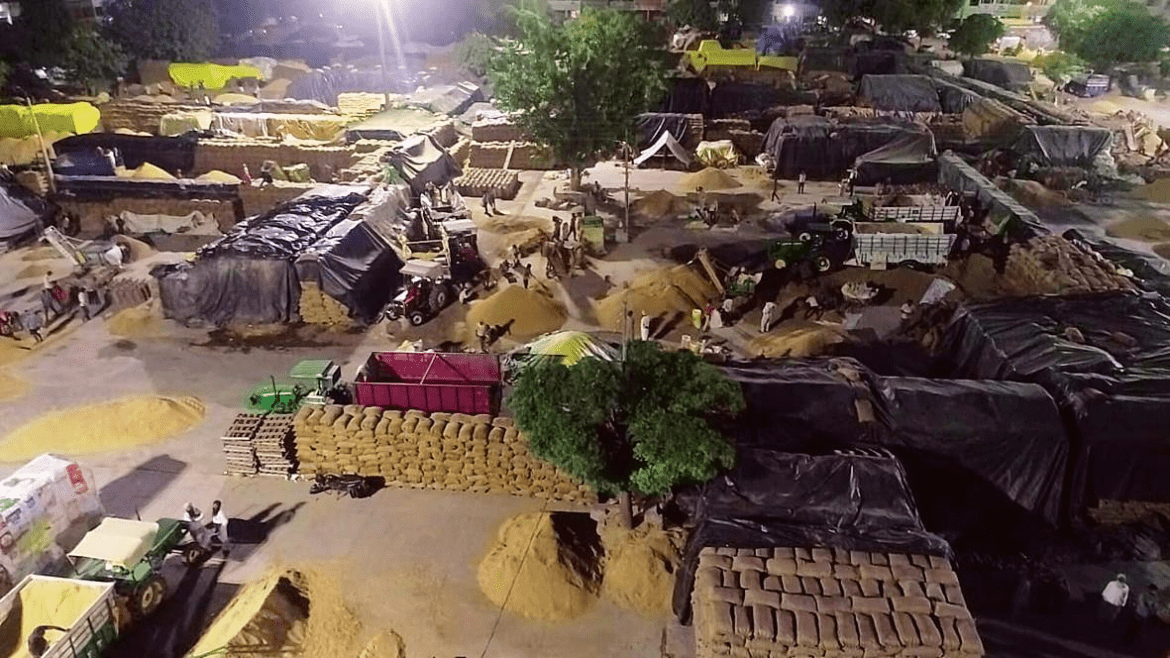AI Generated Summary
- The agricultural landscape of Punjab is currently facing a significant disruption as rice millers across the state continue their strike, causing a ripple effect on paddy procurement operations and choking mandis with unlifted grains.
- A collaborative effort between the government and rice millers is needed to address the concerns raised by both parties and ensure the smooth functioning of the state’s rice industry.
- He stated, “Though they have assured us of taking up the matter with the Centre, we will continue our strike until our demand of accepting our previous years’ FRK-blended rice is accepted, and no miller is unjustly punished.
The agricultural landscape of Punjab is currently facing a significant disruption as rice millers across the state continue their strike, causing a ripple effect on paddy procurement operations and choking mandis with unlifted grains. This ongoing standoff between rice millers and the government is creating turmoil in the state’s agricultural sector, leaving farmers, traders, and government agencies deeply concerned.
As it stands today, an alarming 65 percent of the paddy purchased from farmers remains stranded in mandis, creating an unprecedented crisis. Approximately 14.88 lakh metric tonnes (LMT) of paddy is stockpiled in mandis, with rice shelling units steadfastly refusing to accept the newly purchased paddy onto their premises.
The process of paddy procurement involves several critical stages. Firstly, paddy is procured from farmers, then cleaned and stored in bags within the mandis. Subsequently, it is lifted from these mandis and transported to rice shelling units, where the actual milling and processing take place. Only after this meticulous process, the rice is delivered to government agencies for distribution.
The primary cause of this turmoil is the rice millers’ strike, which has persisted for three days. This strike has been sparked by the government’s decision to reject the fortified rice kernel (FRK) blended rice. The millers argue that they have no control over the quality of the FRK they blend, as it is purchased from Government of India-notified manufacturers. Bharat Bhushan Binta, president of the Punjab Rice Industries Association, expressed their frustration by saying, “Heavy fines are being imposed on us for the poor quality of FRK manufactured by someone else. We only blended what we got.”
Data from the Punjab Mandi Board reveals the extent of the problem. A total of 23.69 LMT of paddy has been delivered to mandis, out of which 22.71 LMT has been purchased. However, only 7.83 LMT of paddy has been lifted, accounting for a mere 34.47 percent of the total purchased stock. This is an alarming situation, with mandis getting increasingly congested, impacting the entire supply chain.
Ravinder Singh Cheema, president of the Arhtiya Association of Punjab, has reported that numerous major mandis, including Khanna, Rajpura, Banur, Patiala, Sirhind, Kharar, Kotkapura, and Mandi Ahmedgarh, are facing severe congestion due to surging arrivals and inadequate lifting of paddy. In Rajpura alone, commission agent Mahinder Krishan Chand Arora disclosed that there was not a yard of vacant space in the mandi. He added that around 18 lakh bags of the total 22 lakh bags of paddy purchased in the mandi had not been lifted, compounding the crisis.
Tarsem Saini, president of the Punjab Rice Millers Association, emphasized their commitment to resolving the issue with the state government. He stated, “Though they have assured us of taking up the matter with the Centre, we will continue our strike until our demand of accepting our previous years’ FRK-blended rice is accepted, and no miller is unjustly punished.” The rice millers are determined to protect their interests and find a solution that safeguards both their livelihoods and the quality of rice produced.
In conclusion, the ongoing strike by rice millers in Punjab is having a detrimental impact on paddy procurement operations and mandis. It is imperative that a resolution is reached promptly to prevent further disruption to the agricultural sector, which is the lifeblood of Punjab’s economy. A collaborative effort between the government and rice millers is needed to address the concerns raised by both parties and ensure the smooth functioning of the state’s rice industry. The future of Punjab’s farmers and the state’s food security depend on it.




